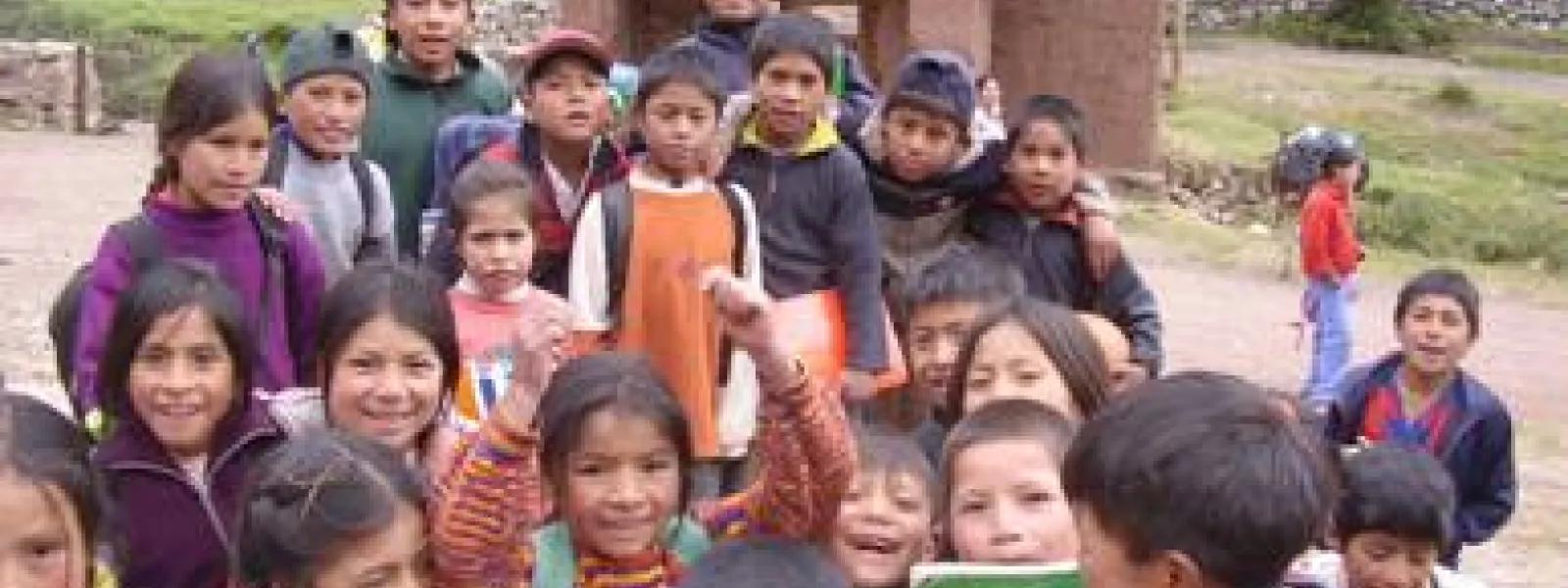
La Oroya before the Inter-American Commission on Human Rights
In an effort to compel the Peruvian government to resolve the health crisis in La Oroya, AIDA appealed to the Inter-American Commission on Human Rights (IACHR) in 2005, requesting that the Commission take urgent precautionary measures (in Spanish) to safeguard human rights.
Working together with Earthjustice, CEDHA, and our Peruvian colleagues, we brought this case on behalf of more than 60 adults and children who live in La Oroya and suffer from health problems believed to be caused by the smelter’s pollution.
The following year, after the government failed to heed Peruvian court mandates to clean up La Oroya, we submitted a full petition to the IACHR, asking the Commission to thoroughly evaluate the human rights situation and obligate the State of Peru to prevent the Doe Run Peru smelter from further contaminating the city.
The Commission responded favorably to our efforts. In 2007, the IACHR requested that the State of Peru take precautionary measures to prevent irreversible harm to the health, integrity, and lives of the people of La Oroya. Specifically, as a first step, the Commission requested that the Peruvian government diagnose and provide specialized medical treatment to the group of people we represent.
When the government was slow to comply, the Commission met with the parties again in 2008 and 2009, and successfully motivated the state to implement the measures appropriately, a process currently in progress.
In August 2009, the IACHR accepted AIDA’s petition to fully evaluate the case against Peru. It based its decision on the fact that the illnesses and deaths allegedly resulting from the severe pollution constitute potential violations of the human rights to life and integrity.
It also found that the State of Peru likely violated the public’s right to information when it manipulated and failed to publish important human health information. Finally, the Commission concluded that the State of Peru unjustifiably delayed compliance with the 2006 decision of the Peruvian Constitutional Tribunal, and thus may be violating citizen’s rights of access to justice and to effective domestic remedies.
Now, several years after the IACHR first ordered Peru to provide precautionary measures, it is clear that the state’s efforts have been woefully inadequate. The 65 residents represented by AIDA have received spotty medical attention that falls far short of the “specialized” care that was promised, and the government’s efforts have not reduced health risks in a meaningful way.
In March 2010, AIDA and its partners returned for another public hearing at the IACHR, to present evidence that the Peruvian government’s actions fail to satisfy the terms of the 2007 recommendations. Backed by findings from independent experts, AIDA argued that the medical evaluations conducted by the government were never completed and that the city is still contaminated by heavy metal pollution that causes a range of debilitating conditions, especially among children. The State denied these claims, insisting that it has taken sufficient action and the case should be closed.
While we wait for a final decision on the case, AIDA will continue to pressure the Peruvian Ministry of Health to comply with its obligations, and to encourage the IACHR to maintain a spotlight on the Peruvian State until the pollution in La Oroya no longer threatens people’s fundamental human rights.
Positive changes resulting from this case will not only benefit those we represent, but all residents of La Oroya. A decision from the IACHR will also create a vital precedent that can be applied in other cases throughout the hemisphere.
Follow us on Twitter:
"Like" our page on Facebook:
Dena DeBry

Dena DeBry is a fine artist and web developer. She runs Buttonwillow Six, a small web development company based in Salt Lake City. To see more, visit http://www.buttonwillowsix.com.
